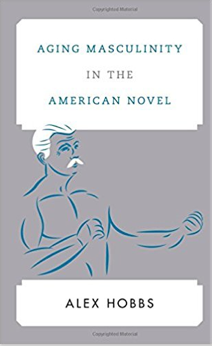 It’s been out for a year, but sometimes it takes a while to discover academic books. One of those titles that was displayed at the recent American Literature Association conference in Boston was Aging Masculinity in the American Novel, by Alex Hobbs, published by Rowman & Littlefield in May 2016.
It’s been out for a year, but sometimes it takes a while to discover academic books. One of those titles that was displayed at the recent American Literature Association conference in Boston was Aging Masculinity in the American Novel, by Alex Hobbs, published by Rowman & Littlefield in May 2016.
In a chapter titled “Late Writing,” Hobbs focuses on John Updike, Philip Roth, Don DeLillo, and Cormac McCarthy, while in her conclusion she asks,
“Why should sexual identity be any less valued than professional identity, for example? Roland Blythe contends, ‘Old age is not an emancipation from desire for most of us, that is a large part of its tragedy. . . . Most of all [the old] want to be wanted.’ This is certainly accurate for Roth and Updike’s protagonists, and, to a lesser degree, perhaps, Paul Auster, Ethan Canin, and Anne Tyler’s characters, too. The long-term pessimism that is displayed by Roth and Updike’s men, but not by those in Auster, Canin, and Tyler’s novels, arguably stems from the way they try to use sexual relationships as their project; they rely on women to make their life whole and worthwhile. Thus, while there should be no vilification of the need or desire to retain an active sex life in old age, the characters analyzed here indicate that it is unhealthy to make this the sole focus for this stage of life. ”
Hobbes earned her doctorate in English from Anglia Ruskin University and teaches through The Open University. Her critical essays have appeared in Journal of American Culture, Critique: Studies in Contemporary Fiction, and Philip Roth Studies.
